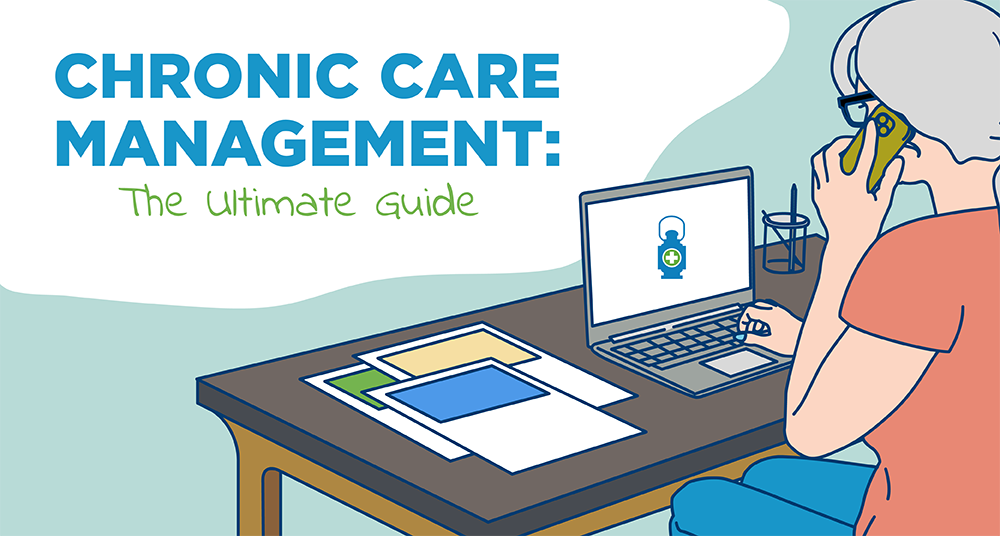
In the realm of healthcare, the management of chronic conditions poses a significant challenge for both patients and providers alike. Conditions such as diabetes, hypertension, and arthritis require ongoing care and attention to prevent complications and improve quality of life. While traditional medical approaches play a crucial role in chronic care management, there is a growing recognition of the benefits of integrative medicine in addressing the complex needs of patients with chronic conditions.
Understanding Chronic Care Management
Chronic care management refers to the coordinated efforts of healthcare professionals to manage and support patients with chronic conditions. This comprehensive approach involves various aspects of care, including regular monitoring, medication management, lifestyle modifications, and patient education. The goal of chronic care management is to optimize patient outcomes, enhance quality of life, and reduce healthcare costs associated with preventable complications.
The Role of Integrative Medicine
Integrative medicine takes a holistic approach to healthcare, emphasizing the importance of treating the whole person rather than just the disease. It combines conventional medical practices with evidence-based complementary therapies to address the physical, emotional, and spiritual aspects of health. In the context of chronic care management, integrative medicine offers additional tools and resources to support patients in managing their conditions effectively.
Key Components of Integrative Chronic Care Management
- Personalized Treatment Plans: Integrative medicine practitioners take into account each patient’s unique needs, preferences, and goals when developing treatment plans. This individualized approach allows for greater flexibility and customization in addressing chronic conditions.
- Mind-Body Techniques: Techniques such as mindfulness meditation, yoga, and tai chi can help patients manage stress, improve relaxation, and enhance overall well-being. These practices have been shown to have a positive impact on various chronic conditions, including pain management and cardiovascular health.
- Nutritional Support: Diet plays a crucial role in the management of chronic conditions. Integrative medicine emphasizes the importance of a healthy, balanced diet rich in fruits, vegetables, whole grains, and lean proteins. Nutritional counseling and dietary supplements may also be recommended to address specific nutritional deficiencies or support overall health.
- Physical Activity: Regular exercise is essential for maintaining mobility, strength, and cardiovascular health, particularly for patients with chronic conditions such as arthritis and diabetes. Integrative medicine incorporates physical activity into treatment plans, with a focus on safe and appropriate exercise regimens tailored to each patient’s abilities and limitations.
- Complementary Therapies: Integrative medicine encompasses a wide range of complementary therapies, including acupuncture, chiropractic care, massage therapy, and herbal medicine. These modalities can help alleviate symptoms, improve function, and enhance overall quality of life for patients with chronic conditions.
Incorporating Integrative Medicine into Chronic Care
Integrating integrative medicine into chronic care management requires collaboration among healthcare professionals, patients, and caregivers. Here are some strategies for incorporating integrative approaches into the management of chronic conditions:
- Open Communication: Encourage open and honest communication between patients and providers to ensure that treatment plans align with patients’ needs and preferences.
- Collaborative Care: Foster collaboration among healthcare professionals from various disciplines, including conventional medicine, integrative medicine, nursing, and allied health professions.
- Patient Education: Provide patients with information and resources to help them make informed decisions about their health and well-being. Empower patients to take an active role in managing their chronic conditions through education and self-care strategies.
Conclusion
Integrative medicine offers a valuable framework for enhancing chronic care management by addressing the complex needs of patients with chronic conditions. By incorporating evidence-based complementary therapies, personalized treatment plans, and a holistic approach to health and wellness, healthcare providers can optimize patient outcomes and improve quality of life for individuals living with chronic conditions.
Leave a Reply